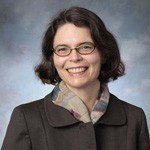 Does it seem like you have more students in your classes who have an Accessible Education Services (AES) accommodation plan? Your intuition is correct, and it’s not just you, according to AES manager Melanie Gangle. Accessible Education Services is experiencing slow but steady growth, and is currently serving over 350 students with disabilities. This equals about 8.5 percent of the student population, and the vast majority of these students experience a non-apparent disability. The following resources and tips from AES are designed to support faculty in facilitating accommodations and accessibility in your teaching.
Does it seem like you have more students in your classes who have an Accessible Education Services (AES) accommodation plan? Your intuition is correct, and it’s not just you, according to AES manager Melanie Gangle. Accessible Education Services is experiencing slow but steady growth, and is currently serving over 350 students with disabilities. This equals about 8.5 percent of the student population, and the vast majority of these students experience a non-apparent disability. The following resources and tips from AES are designed to support faculty in facilitating accommodations and accessibility in your teaching.
Did you know that Accessible Education Services has a Faculty Toolbox in PilotsUP for faculty regarding AES accommodations for students? Here you will find information on faculty responsibilities regarding accommodations, as well as tips on facilitating accommodations working with students with specific types of disabilities.
Are you looking for more general resources to support student learning in your course? Given the nation-wide growth in clinically significant anxiety and depression among college students, Kristel Gallagher and Shevaun Stocker developed a Guide to Incorporating Social-Emotional Learning in the College Classroom, which features a curriculum containing short weekly activities for students to complete outside of class (apart from an initial activity for the first class day), suitable for adapting and adding to any course curriculum. These activities are based on exercises from the Greater Good in Science Center’s website, based at UC Berkeley.
Do you have questions about accommodations for a specific student in your class? Please reach out to Gangle at gangle@up.edu, or Susan Ayres, AES access counselor, at ayres@up.edu for information and technical assistance regarding student-related accommodation questions.
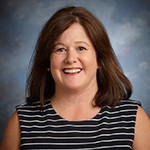 Susan Ayres has been promoted to the role of access counselor in Accessible Education Services (AES), within the Shepard Academic Resource Center. Ayres most recently served as AES Accommodation Coordinator and AES Program Assistant. In previous roles, Ayres has served as administrative assistant at All Saints Parish, staffing coordinator for Staffing Partners, vocational consultant supporting clients with disabilities for Great Northern Consulting, and job developer providing job placement for clients with disabilities for Dirkse Counseling and Consulting.
Susan Ayres has been promoted to the role of access counselor in Accessible Education Services (AES), within the Shepard Academic Resource Center. Ayres most recently served as AES Accommodation Coordinator and AES Program Assistant. In previous roles, Ayres has served as administrative assistant at All Saints Parish, staffing coordinator for Staffing Partners, vocational consultant supporting clients with disabilities for Great Northern Consulting, and job developer providing job placement for clients with disabilities for Dirkse Counseling and Consulting.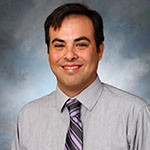 Ryan Henley has been hired by Accessible Education Services as testing and accommodation coordinator, within the Shepard Academic Resource Center. You might know Henley from his previous position at the University where he served as administrative assistant to the associate dean for students, College of Arts and Sciences. Henley previously served as administrative assistant for the Albertina Kerr Center. Additionally, for over ten years Henley has volunteered his time as an event graphic designer for a local nonprofit, My Voice Music, Inc. which serves at-risk Portland-area youth.
Ryan Henley has been hired by Accessible Education Services as testing and accommodation coordinator, within the Shepard Academic Resource Center. You might know Henley from his previous position at the University where he served as administrative assistant to the associate dean for students, College of Arts and Sciences. Henley previously served as administrative assistant for the Albertina Kerr Center. Additionally, for over ten years Henley has volunteered his time as an event graphic designer for a local nonprofit, My Voice Music, Inc. which serves at-risk Portland-area youth. Did you know that the majority of students with accessible education services (AES) accommodations have either a learning disability (LD), or attention deficit/hyperactivity disorder (ADHD), or both LD and ADHD? These two articles discuss the benefits of utilizing a growth mindset approach when teaching students who experience ADHD and LD. The surprise? These same growth mindset and universal design strategies also benefit learning outcomes for students without disabilities.
Did you know that the majority of students with accessible education services (AES) accommodations have either a learning disability (LD), or attention deficit/hyperactivity disorder (ADHD), or both LD and ADHD? These two articles discuss the benefits of utilizing a growth mindset approach when teaching students who experience ADHD and LD. The surprise? These same growth mindset and universal design strategies also benefit learning outcomes for students without disabilities. Incorporating Universal Design into a course is an iterative process, much like course design itself. Continually utilizing feedback and ideas from colleagues, class discussion, and the literature to modify and enrich learning experiences provides greater opportunities for all students to access course content, regardless of learning modality preference. UC Berkeley’s Instructional Design Community focused on Universal Design and shared
Incorporating Universal Design into a course is an iterative process, much like course design itself. Continually utilizing feedback and ideas from colleagues, class discussion, and the literature to modify and enrich learning experiences provides greater opportunities for all students to access course content, regardless of learning modality preference. UC Berkeley’s Instructional Design Community focused on Universal Design and shared  You may have noticed more service dogs being used by people with disabilities in stores, in airports, at neighborhood meetings, and even on campus. Are you curious about what differentiates a service dog from a pet? Take a quick break and watch this enjoyable
You may have noticed more service dogs being used by people with disabilities in stores, in airports, at neighborhood meetings, and even on campus. Are you curious about what differentiates a service dog from a pet? Take a quick break and watch this enjoyable  Do you wonder why some students eligible for accommodations through accessible education services (AES) do not actually use their accommodations? According to Melanie Gangle, accessible education services, in a recent
Do you wonder why some students eligible for accommodations through accessible education services (AES) do not actually use their accommodations? According to Melanie Gangle, accessible education services, in a recent 
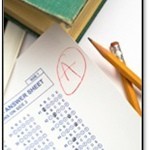 Accessible Education Services is offering Exam Accommodation Workshops for faculty on August 22 at 11 a.m. and 2:30 p.m., and on August 23 at 11 a.m. and 1 p.m. Topics covered will include helpful tips for planning ahead for exam accommodations, support resources available, and legal requirements.
Accessible Education Services is offering Exam Accommodation Workshops for faculty on August 22 at 11 a.m. and 2:30 p.m., and on August 23 at 11 a.m. and 1 p.m. Topics covered will include helpful tips for planning ahead for exam accommodations, support resources available, and legal requirements.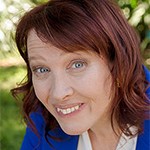 The University of Portland hosted the Oregon Association of Higher Education and Disability (ORAHEAD) Conference on April 14-15. The conference brought representatives of twenty higher education institutions (8 four-year universities and 12 community colleges) to The Bluff, along with staff from the Oregon Vocational Rehabilitation Division and Oregon Commission for the Blind. The keynote speaker was Ms. Wheelchair America 2016, Alette Coble-Temple (pictured), who presented on “Cultivating a Culture of Empowerment.”
The University of Portland hosted the Oregon Association of Higher Education and Disability (ORAHEAD) Conference on April 14-15. The conference brought representatives of twenty higher education institutions (8 four-year universities and 12 community colleges) to The Bluff, along with staff from the Oregon Vocational Rehabilitation Division and Oregon Commission for the Blind. The keynote speaker was Ms. Wheelchair America 2016, Alette Coble-Temple (pictured), who presented on “Cultivating a Culture of Empowerment.”